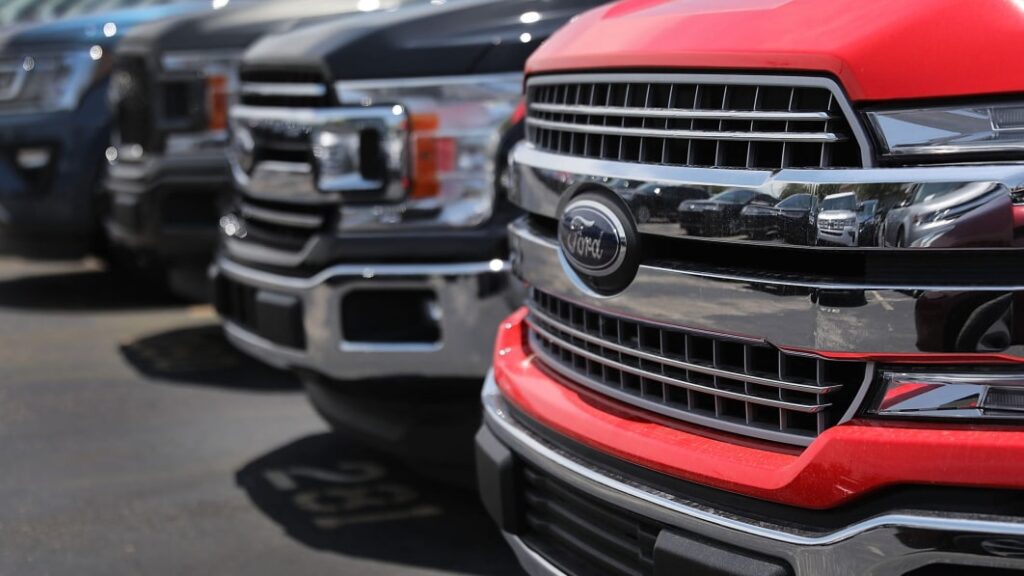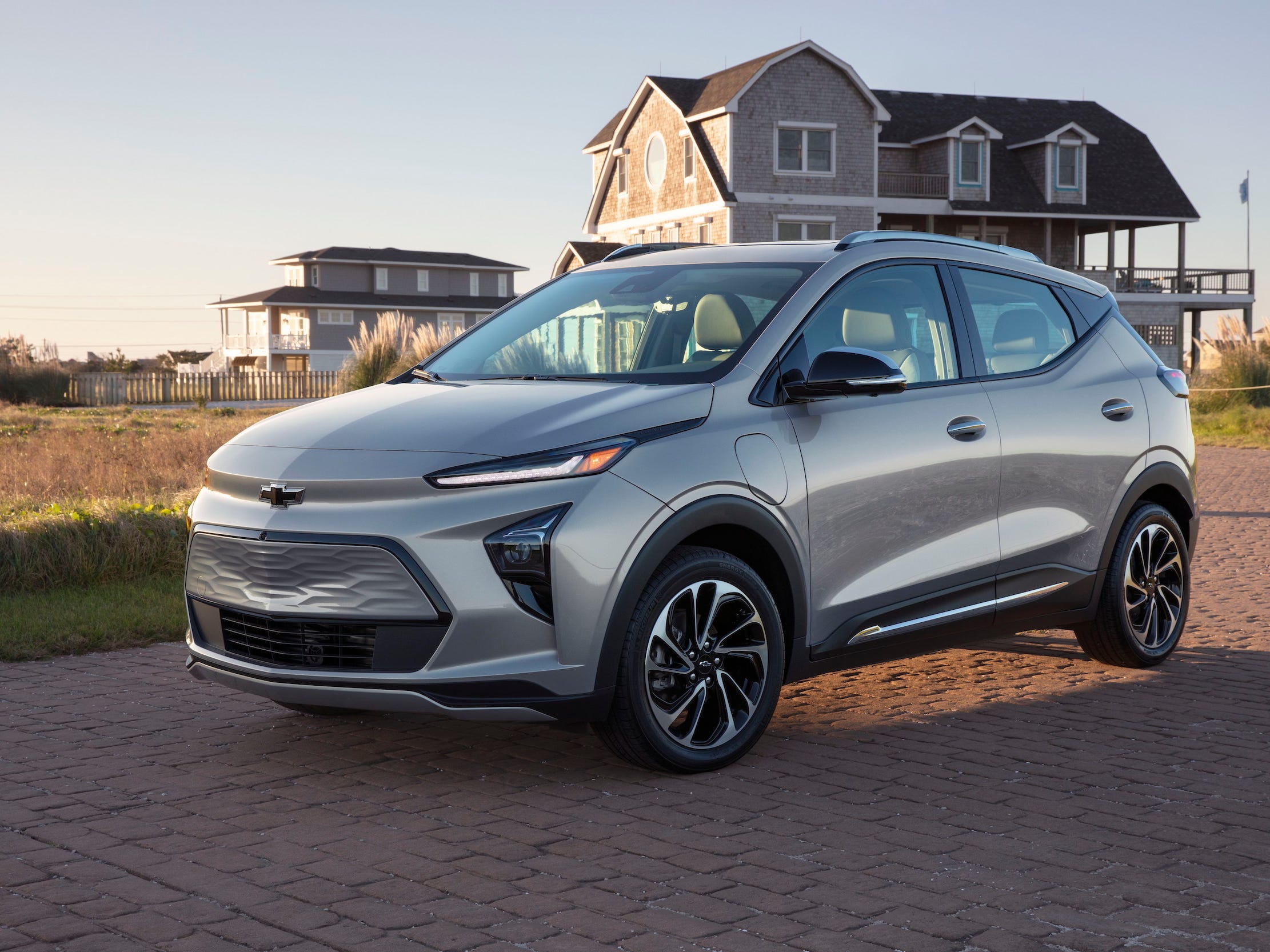Electric cars are too expensive because Americans insist on having more car than they need

US car-buyers love their
trucks and SUVs, but they don’t love the prices of electric ones.
Joe Raedle/Getty Images
The average new EV sells for over $61,000 in the US, locking many buyers out of the market.
Cheap-ish EVs are slowly rolling out.
But Americans love SUVs and trucks, and they’re going to have to pay for them in the near term.
Americans tend to think a bigger car is a better car.
The most popular vehicle segments in the U.S. are SUVs and pickup trucks. The Ford F-Series has been the country’s top-selling vehicle for more than 40 years — followed last year by the Chevrolet Silverado, Ram pickup lineup, and Toyota RAV4.
So given that a large vehicle is what a good portion of the U.S. population is looking for, it’s no surprise that rule applies to electric vehicles, too.
It’s one reason EV adoption has only been creeping up in the U.S., barely hitting almost 6% in 2022.
A lot of prospective EV buyers just haven’t yet found the types of EVs they’re looking for. They don’t necessarily need more luxury electric sedans — they want the trucks and SUVs they’re used to.
“Up until recently, we really didn’t have much optionality in that from an EV perspective,” Steve Patton, EY America’s mobility sector leader, told Insider.
“It’s no surprise and no coincidence that most of the new models being introduced or planned to be introduced over the coming months are around that segment because that’s what we as U.S. consumers want to purchase.”
A recent study found most car-buyers don’t want to spend more than $50,000 to go EV, but they also want
electric trucks and SUVs that inherently cost more.
Tim Levin/Insider
Bigger batteries mean more expensive cars
That model availability compounds EV cost. The average new EV sold for $61,448 in December, Kelley Blue Book estimates.
And yet, a recent Deloitte study found that 70% of U.S. car buyers won’t spend more than $50,000 to go electric.
Bigger vehicles are often just more expensive, largely because they require bigger batteries — the most expensive part of these new EVs. Popular EVs today include the high-end electric $100,000 GMC Hummer pickup, $75,000 Rivian R1T, and nearly $62,000 Cadillac Lyriq.

There are more affordable EVs available, but it might mean car-buyers have to sacrifice which segment they want.
Chevrolet
What a car buyer could look for
Those wanting a cheaper EV may want to look at less expensive models like the $27,800 Chevrolet Bolt and the similarly-priced Nissan Leaf. That might require some sacrificing, though.
In the long run, EVs are generally creeping down in price, and more affordable SUVs are starting to come into play. The Volkswagen ID.4 and Kia Niro SUVs go for just under $40,000 each. The Hyundai Ioniq 5 and Toyota bZ4X SUVs are at about $41,000 and $42,000, respectively.
Plus, the new EV tax credits might be able to help out even more — in fact, those don’t even apply to higher-end EVs above certain MSRP caps.
Important battery minerals, especially lithium, drove the cost of batteries up 7% last year. Increased demand for more and more battery materials has delayed the future of plummeting EV prices, but these drops are still in the works.
And over time, with scale comes lower prices.
“For this segment to be more than just a niche, it has to get more affordable, but it also has to operate across multiple vehicle types,” said Stephen Beck, managing partner of consultancy cg42. “That’s happening, and that leads to a competitive environment that’s a lot more dynamic.”




